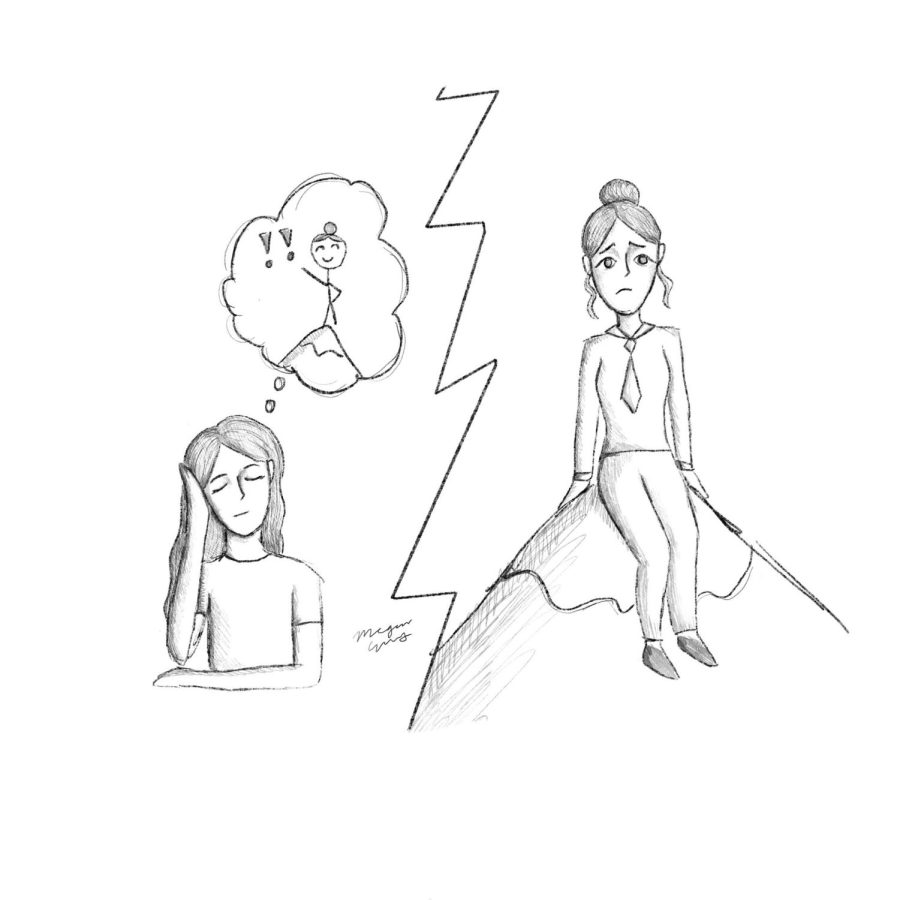No real ‘happily ever after’
Media stresses need for happy endings to consumers
How many times have you thought, “Once I pursue my dream job I’ll be happy,” or, “When I am finally able to find people who really understand me, I’ll be happy?” The media has time and time again convinced its viewers that everyone should get a happily ever after. It has convinced people that one singular accomplishment or life event will lead to forever happiness.
In movies, this often involves a protagonist finding “true love” or finding a “true passion.” Many people believe in the “Arrival Fallacy” which says that once one meets an accomplishment one will obtain happiness forever. According to a physiological study by the World Happiness Report, people think they will feel happier five years from now than they feel currently. Unfortunately, this kind of mindset is unrealistic.
When one relies heavily on accomplishments as a source of happiness, one is subjecting themselves to feeling underwhelmed when one does reach their goals. Goals are great to have, but working towards those goals only for a final outcome will not satisfy happiness. This is because when one reaches a goal, their brain will release dopamine, but afterward, the dopamine will drop back down. Reaching goals cannot provide permanent happiness, and when people expect it to, it only leads them to disappointment. Many will question why such a long-term goal didn’t truly bring happiness, and it’s because life doesn’t stop at a happy moment as movies do. In order to obtain happiness, people need to let go of unrealistic expectations and allow their accomplishments to stand alone rather than rely on those accomplishments for happiness.
Another important concept to grasp is that life is not always going to be perfect. The mantra “this too shall pass” tells people that although life may be difficult now, the tough times will eventually fade. Unfortunate events are inescapable, and every person will at one point deal with loss and failure. Difficult periods of life can leave people, especially those who believe in the Arrival Fallacy, completely destroyed. People who understand these difficult times are inevitable will be able to handle difficulties more positively. Understanding that there is no way they can feel okay in the moment, but that they will eventually feel better, allows them to heal.
Social media and televised media also play into why so many people believe in happy endings. Getting snapshots of other people’s lives and perfect conclusions from movies makes people feel that their lives should be perfect as well. The issue with this mindset is that while getting to the top of a mountain can feel amazing, you still have to get back down. In the media, we often see people reach the top of a mountain, but we never see how their life proceeds afterward.
With all said, it is important to understand that life is not comparable to movies. Allow happiness and sadness to come and go, and look for fulfillment rather than pleasure in life. Don’t rely on accomplishments to bring happiness, but look for joy in daily life.



